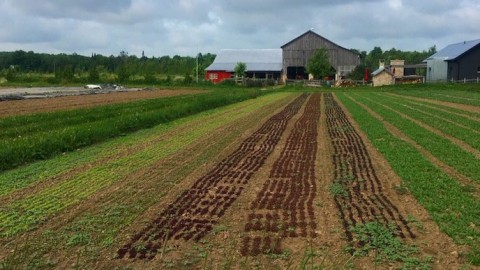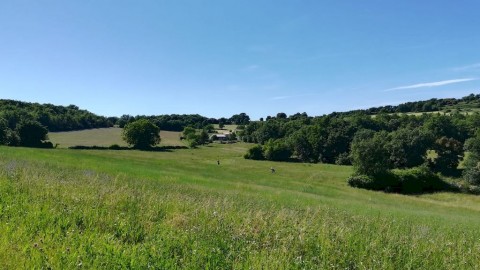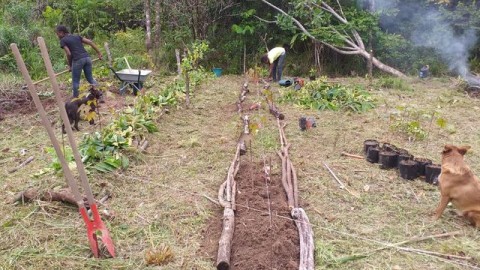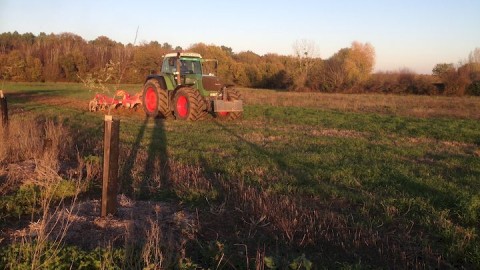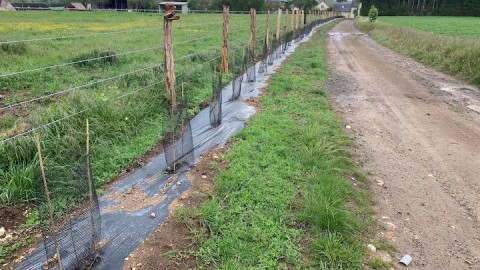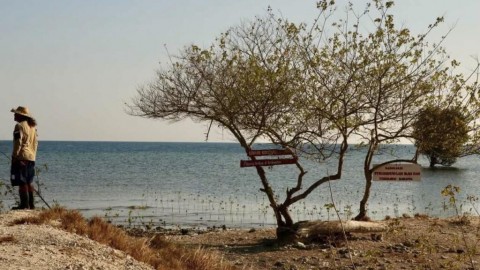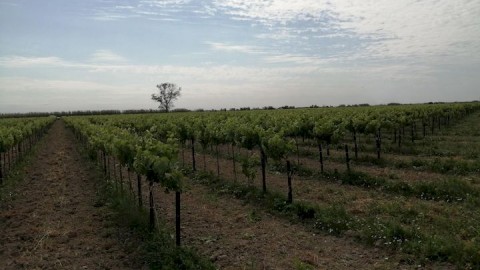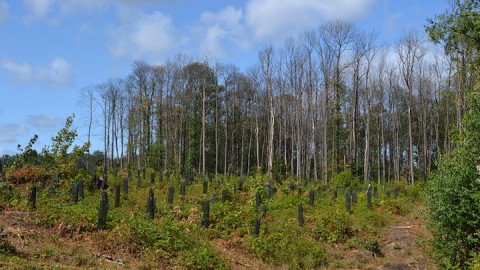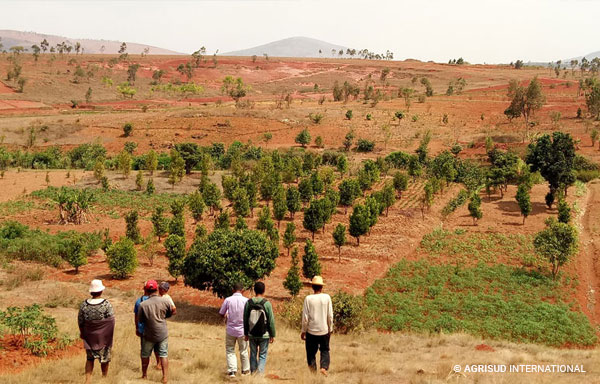
Background & challenges
In the sensitive region of Lake Itasy, the Mahavotra project is helping 900 farming families to change their practices and introducing forestry and agroforestry systems.
Objective: to finance the plantation of 108,500 trees in 2022, of which 48,825 are expected to remain after three years.
Covering a surface area of 35-square-metres, Itasy is the third biggest lake in Madagascar. It plays a pivotal role in developing the region, especially tourism and fishing, yet is at threat from silting caused by inappropriate practices, e.g. crops grown on slopes without anti-erosion measures or slash-and-burn. The surface area of the lake has shrunk by between15 to 20% over the past 50 years!
Mahavotra’s project has three types of implementations that address these issues:
- Installing forest plantations on uncultivated areas to provide the population with firewood and additional income in the medium and long term;
- Establish agroforestry plantations to improve income in the medium term: sale of fruit and coffee after 3 to 5 years;
- Carry out anti-erosion measures on sloping plots of land.
Beyond its direct economic and environmental effects, tree planting, through its action on maintaining and improving soil quality, also makes it possible to increase the yields of food crops (maize, beans, cassava, etc.). Plantations of leguminous plants, such as acacia, also provide large quantities of biomass that can be used for compost production.
The planting of trees also helps to limit the important phenomena of surface erosion linked to both a low vegetation cover and an intense rainy season.
Whether it is the planting of forest or agroforestry species, the project improves biodiversity within the areas by increasing the number of species present. The diversification of species will benefit both the local flora and fauna.
Concerning the benefits on water, the implementation of forestry and agroforestry systems allows both a better recharge of the water table (increased infiltration) and a maintenance of the quality of surface water in the rainy season (limitation of erosion).
Plantations allow carbon sequestration in the soils of forest plantations (following the enrichment of the soils in organic matter) and agroforestry plantations (linked to the input of organic matter in the plantations).
Finally, the plantations have an important social impact because they secure the land allocation for the farmers concerned by the project.
Project type

Agroforestry and forestry
Beneficiaries

900 farming families, men and women
Number of trees

108,500 trees in 2022, of which 48,825 are expected to remain after three years
Species planted

Forest species: pine, acacia, eucalyptus mainly and also rosewood, grevillea, mantaly paulownia;
Agroforestry species: orange, lemon, mandarin, coffee and lychee trees.
Partner

Agrisud International and Amadese
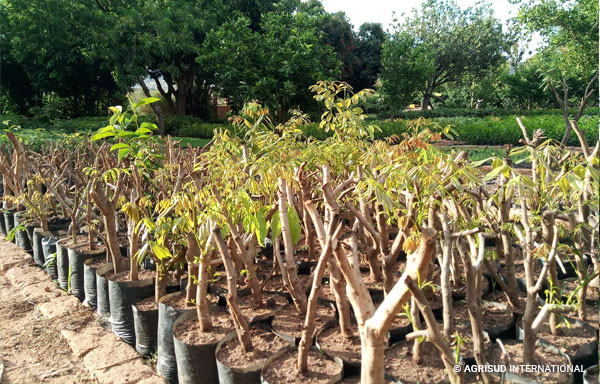
Works timeline
First campaign:
April to November 2021: identification of sites and beneficiaries; production of seedlings in the nursery, training and support to the communes and the various stakeholders on the management of “communal operational plans”.
October 2021 to March 2022: training of site managers and beneficiaries, planting;
January to June 2022: monitoring the recovery of young plants.
Second campaign:
June to November 2022: production of seedlings in the nursery, continuation of accompaniment and training of the various stakeholders on the management of “communal operational plans”; October 2022 to March 2023: production of seedlings in the nursery, continuation of accompaniment and training of the various stakeholders on the management of “communal operational plans”.
October 2022 to March 2023: training of site managers and beneficiaries, planting;
January to June 2023: monitoring the recovery of young plants.
For the three campaigns, every year after planting and until 2026:
July to September: monitoring of seedlings and assessment of replanting needs; installation and maintenance of firebreaks (around the edges of the plot, by cutting out seedlings or associated crops).
October to December: monitoring of seedlings and assistance to producers for the production or acquisition of seedlings required for replanting.
January to March: replacement of missing plants.
April to July: maintenance of plantations and firebreaks.
Planting partner
AGRISUD INTERNATIONAL
Created in 1992, Agrisud International is a charitable public utility association.
Its teams help people in need to set up and develop very small, family-run agricultural holdings that are viable, and sustainable thanks to agroecology. Such ventures create value and are economically profitable. They are organised and implanted in their territory and on local markets. How so? Because the entrepreneurs follow a professional development path that leads them from precarity to independence: 60,000 very small holdings supported since 1992.
Operating in Madagascar since 2008, Agrisud is active in 15 countries in Africa, Asia, South America, and the Caribbean.
Its total annual budget of €4 million is financed 70% by public funding (French Development Agency, European Union, Coop déc.) and 30% by private sources (foundations, businesses, individuals).
AMADESE
Is a Malagasy association created in 2004, based in Ampefy in Itasy.
AMADESE has two main areas of intervention:
- promotion of agricultural (including livestock and fisheries) and environmental sectors: i) support for the preservation, protection and development of watersheds in favour of biodiversity (Lake Itasy, Tapia Forest, etc.); ii) restoration of forest landscapes (reforestation, combating bush fires, production of seedlings); iii) promotion of agro-ecology; iv) development of agricultural value chains; v) support for farms in adapting to and mitigating the effects of climate change
- Territorial development engineering: i) support for the design and validation of Development Plans/Schemes at the village, communal and regional levels; ii) support for the implementation of Development Plans/Schemes; iii) advocacy actions.
AMADESE has been involved in the Mahavotra project implemented by Agrisud International in Itasy since 2011 as a local technical partner, in charge of implementing activities to support communes in the elaboration and implementation of development plans (SAC). It supports the communes in the elaboration of development projects for agricultural areas, the training of communal agents and members of the Communal Development Committees (CCD) on development techniques, technical support and monitoring of the implementation of development projects, at the level of 7 rural communes (Ampefy, Antanetibe, Antoby Est, Dondona, Manazary, Mandiavato and Mahavelona) of the Itasy Region.
Budget
The total budget to be collected is €122,062.50, i.e. €2.50 per tree sustainably installed,
- 95% of which is allocated to the planting project, broken down as follows
- Plants: €0.49
- Technical supervision and coordination during the planting years: €1.14
- Technical supervision for the 3 years following planting: €0.42
- Collection, follow-up and communication costs for A Tree for You (13%): €0.325
- and 5% (0,125 €) for the structural costs of A Tree for You.


